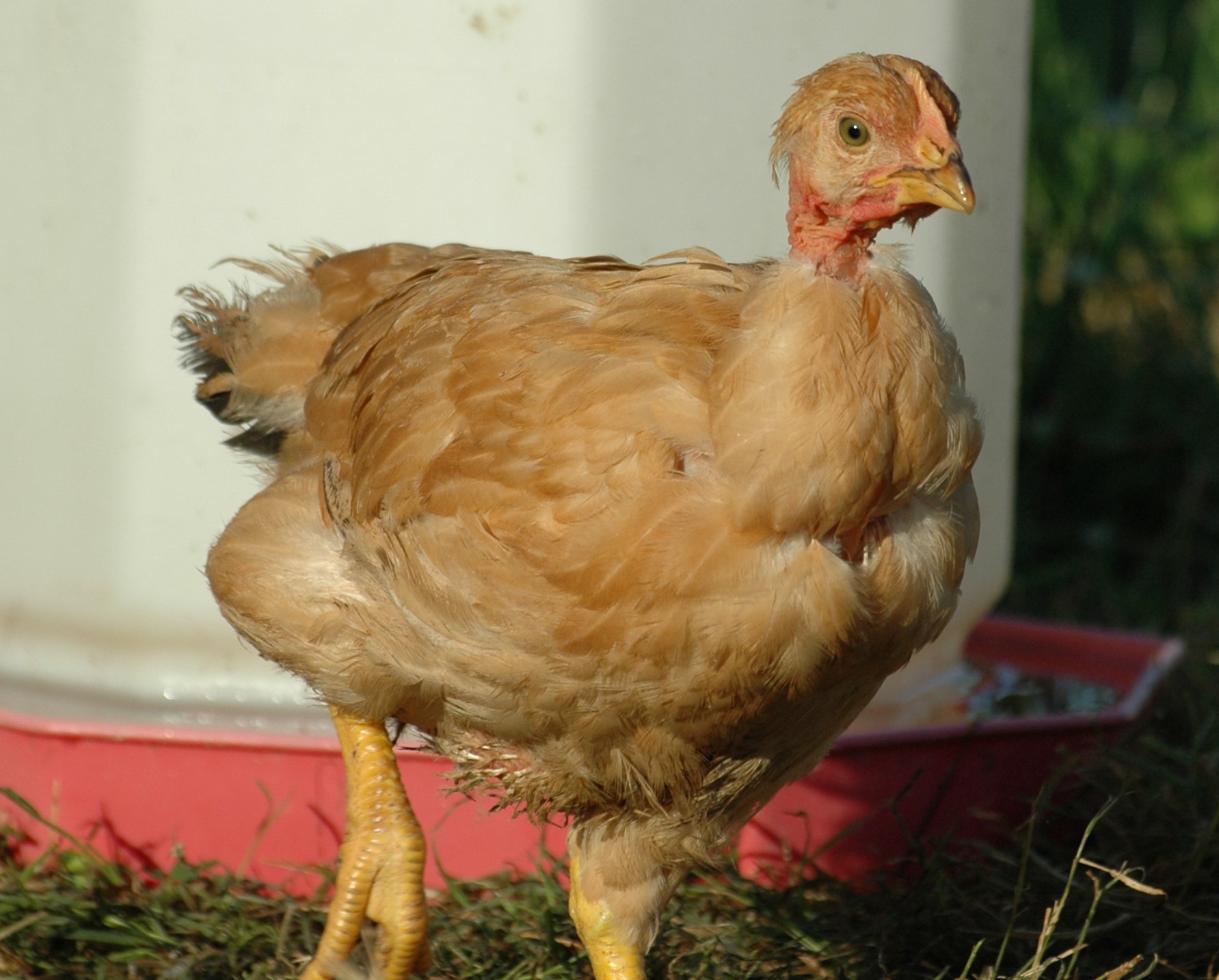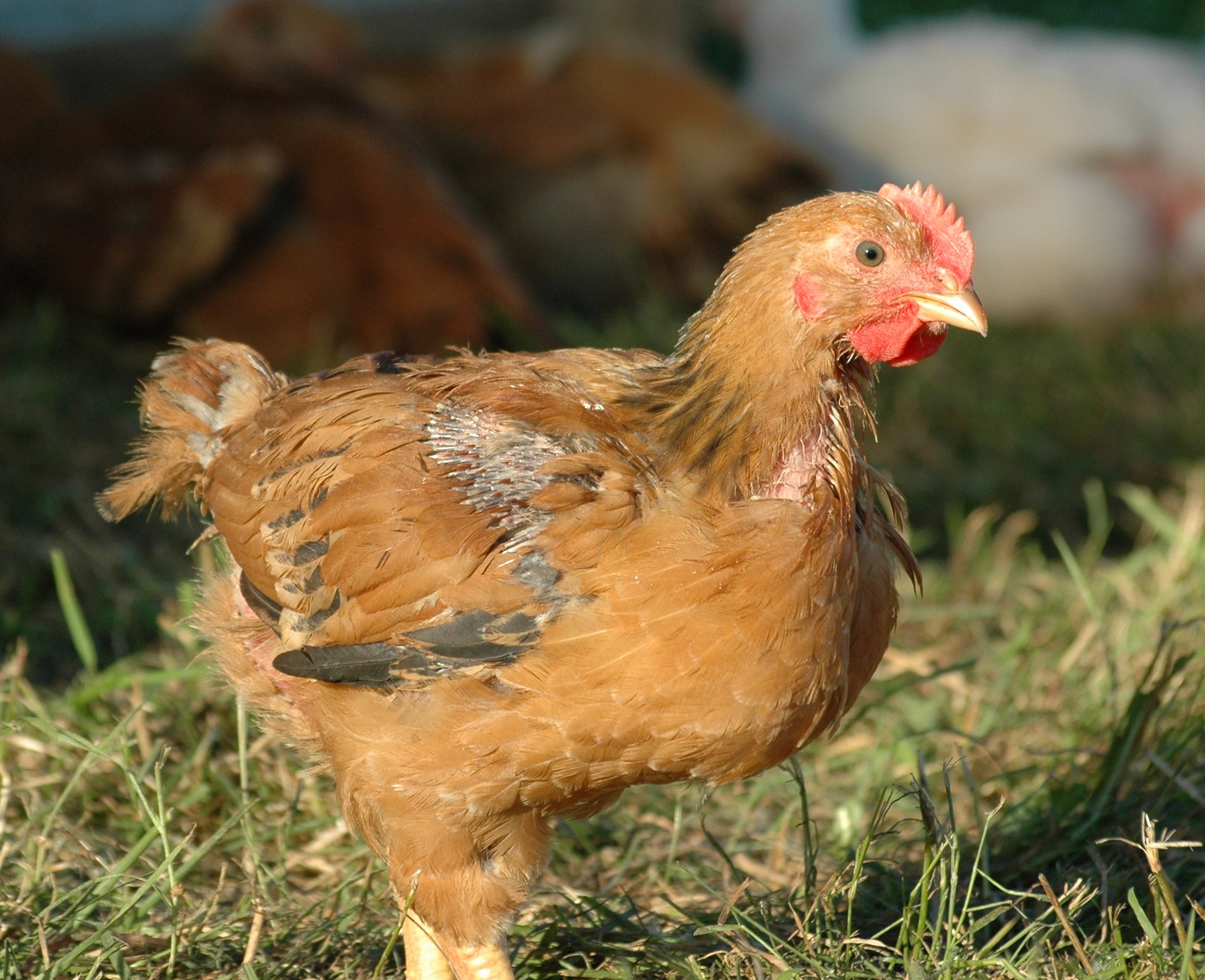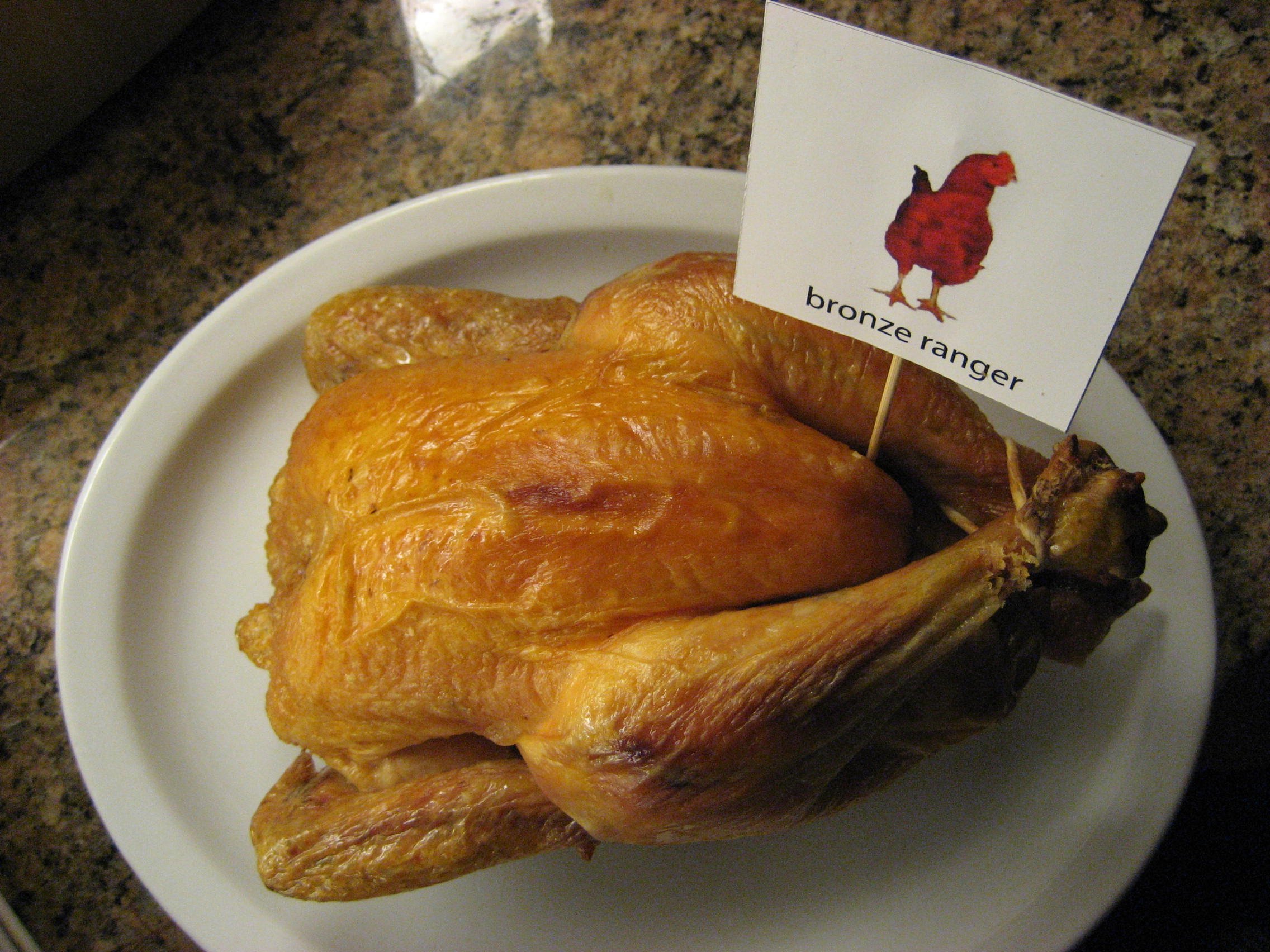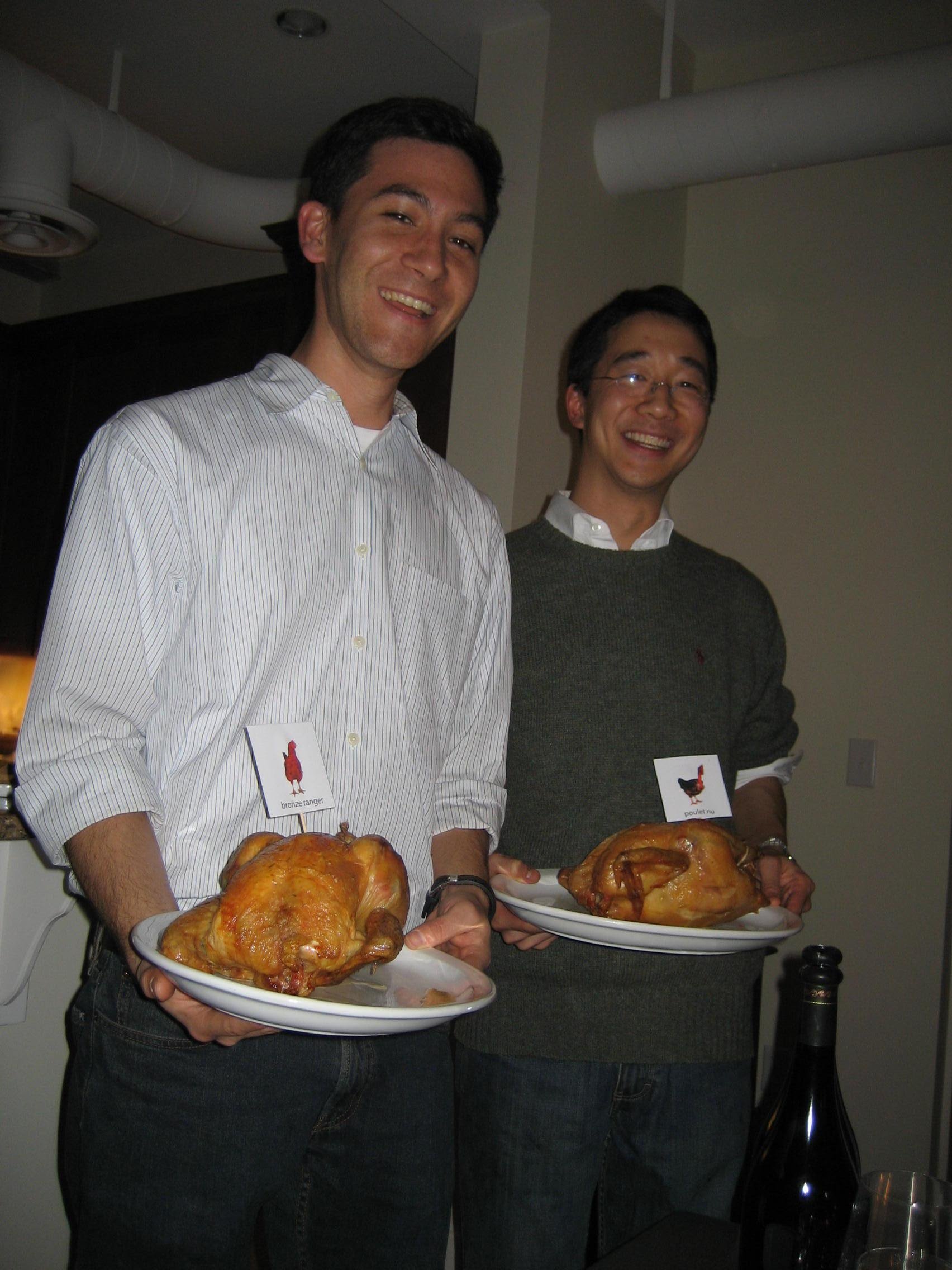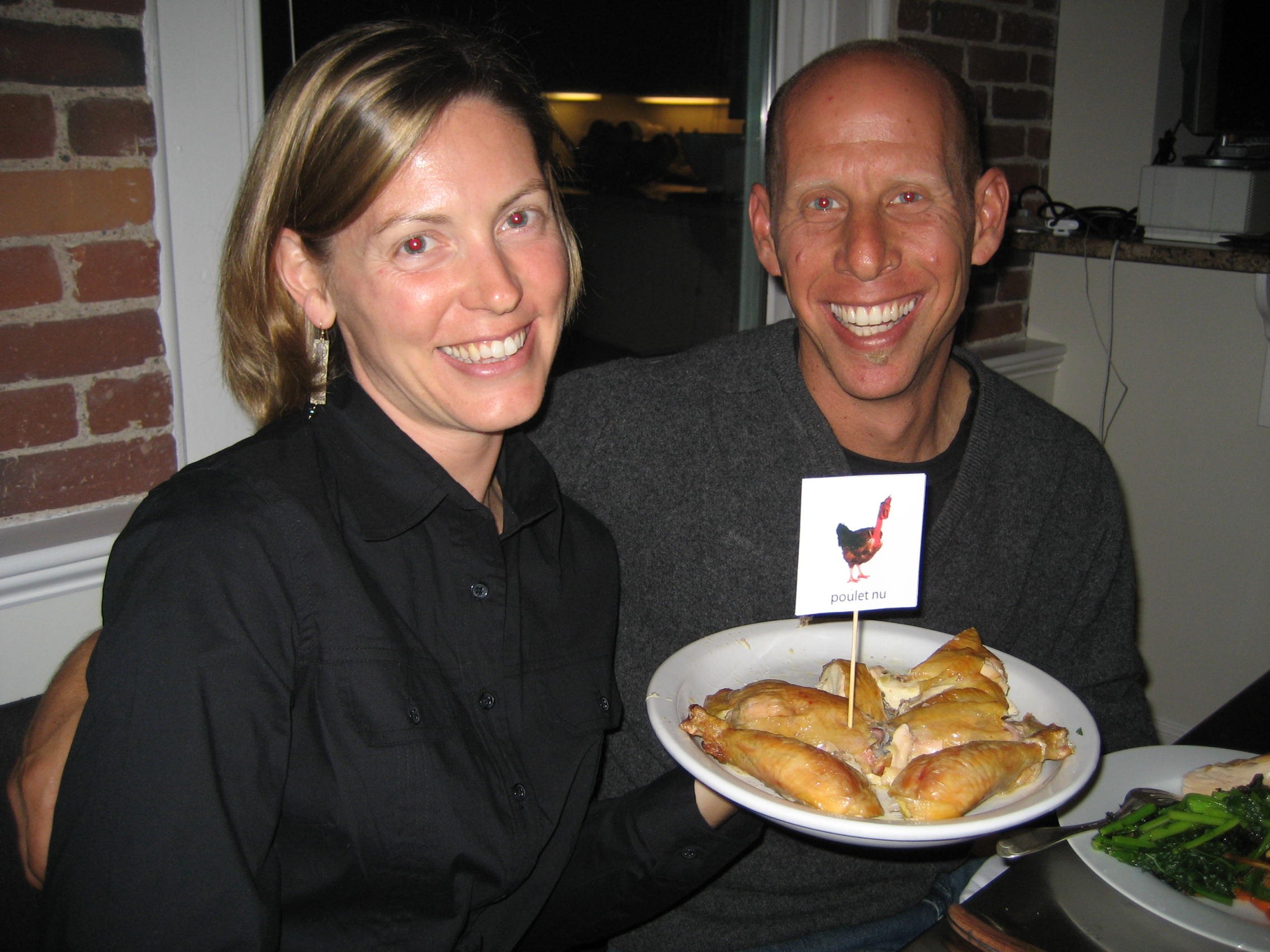As some may have seen, Codman Farm chickens were in the news this week! A Boston Globe reporter was inspired to undertake a chicken roasting taste test after a friend of hers RAVED and RAVED (and RAVED) about how awesome our chickens are. Seriously. If you are reading this, you already know this to be true about our chickens (and eggs, and pork and beef, and veggies...might as well just admit we are fantastic growers!). Anyway, this entire taste test and story occurred because of our great chickens, and so the reporter decided to see if her friend was right in his proclamation that our birds are the best. Unfortunately, it seems the test was a bit flawed - but it's all good. Let me explain.
Firstly, bigly, and it should be duly noted, and reiterated...and emphasized...and mentioned one last time... that all chickens are not created equal! I believe that while the taste test, as performed, was supposed to be comparing similar birds, in fact, this assumption was the fatal flaw in this story. As a farmer, it is very hard to read stories like this where it is assumed, that all chickens are essentially of the same ilk, and commoditized. The beauty of our local food is that you cannot just lump it all into one, lowest common denominator. I can give a gazillion reasons why this is just wrong. As an example...for those gardeners out there....when was the last time you perused a seed catalog containing hundreds of beautiful vegetable varieties - and then decided to just toss that catalog in the fire and call the seed company to say, "Hey seed company, can you just send me some broccoli, tomato, and bean seeds, thanks". No No. You don't do that! And why not? Because there are scores of varieties of broccoli, tomato, and beans, etc...and you want to grow SPECIFIC varieties because you know they are all different - they grow differently, taste differently, look differently, and so on. The same goes for livestock. Are Waygu beef cattle the same as Holstein dairy cattle? Uhh, no. Are bantam Light Sussex chickens the same as a Jersey Giant or wild Jungle Fowl? No! But, aren't they just all the same? Aren't they JUST vegetables, chicken, and beef? I know I'm being a bit over the top with these examples but it's just not fair to lump these things into commodity baskets. Yes, as farmers we are the most offended by this because it's our business to know the differences and understand the nuances of what we are growing...but you might think that a chef, reporter, and food writer might also care to explain a bit more about how varieties, strains, and growing methods can affect greatly the flavor of our food. (and I'm not even going to discuss the ethics of how animals are raised) Unfortunately, as in most instances these days, things need to be easy to understand for the masses - so these important attributes are simplified. I get that. It's just frustrating...
To get back to the story. A taste test was done comparing nine of the same (but not all the same) chickens. It was a triple-blind, double-secret test where no taster knew diddly about what they were eating. Well, yes, it was a chicken, taste test. They knew that. I suppose. I'll cut to the chase. We tied for 2nd/3rd. Which actually is pretty good based on what I'm about to tell you. The chicken that did win, we believe, was in fact a breed of bird very close to our Freedom Ranger. Which if you have tasted ours, you know how great they are. The BREED is just different from almost all of the other birds out there - it has such beautiful fat, deep chicken flavor, rich dark meat, smaller but super moist breast meat, and overall just a super tasty bird. (The genetics were actually developed in France to meet the demand there for more highly flavorful food and this chicken quickly became the star of the chicken world). We think the rest of the birds tested, including the one of ours in the test were the Cornish breed. So the birds that were compared were not equal. Cornish is the breed that 99% of what commercial chickens farms grow. There are many sub-strains of Cornish but I won't get too stuck in the weeds here for argument's sake. In general, it's a fast-growing bird that is profitable to raise because it converts grain to muscle very efficiently - and within 40 days you can have a nice-sized roasting bird. It doesn't have much flavor, but that's not why the genetics were developed. It is a protein-growing machine, meant for speed and profitability. BUT, if you do grow this same breed on pasture, it does yield superior flavor due to a more diverse diet of grass and insects along with plenty of exercise to further develop muscling. This is why (we believe) our Cornish was rated quite tasty as compared to the Freedom Ranger type - exactly because of our growing practices. We firmly believe our bird would have won if they roasted one of our Freedom Rangers vs the other top-winning chicken. And that's my beef, or chicken, regarding this story.
FYI, I was contacted by the reporter before the story ran to let us know that a chicken taste test story was in the works, and while the reporter emailed to ask how the birds were grown...my first question was WHICH BREED of ours was in the test? I didn't get a reply. Point proved.
Lastly, way back in 2006 after we had raised meat chickens for a few years, Jen and I began trialing different chicken strains every year to determine what was the best of the best. Below is a photo from one of these taste tests (a very tasty poulet nu chicken) and boy does that chicken look good....and we don't look too shabby either!
And in case you were wondering...we have lots of Freedom Ranger whole chickens in stock so you grab some for yourself if you have never tried one!
Next week will be Part 2. Meat Chicken Economics. Stay tuned!

